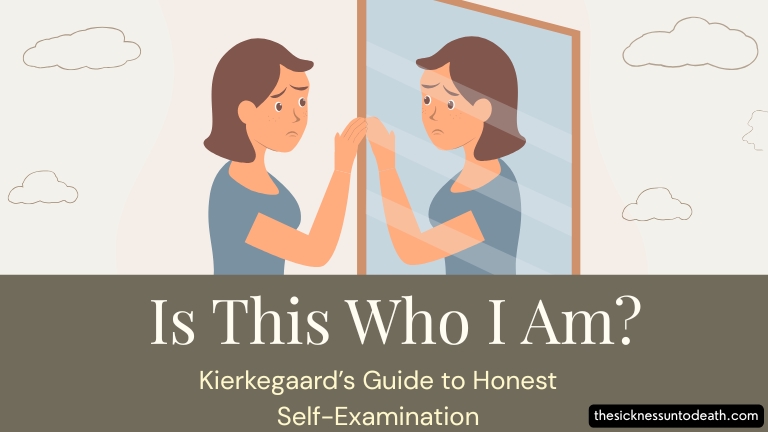Unpack how Kierkegaard’s emphasis on self-reflection can aid those seeking to uncover their true identity beneath cultural roles.
We wear so many labels in life—student, parent, professional, achiever, creative. We build our lives around them, often without stopping to ask: Are these roles who I truly am—or just what I’ve become?
It’s a question that haunted Søren Kierkegaard, the 19th-century Danish philosopher whose insights feel even more relevant today. In a world full of noise, comparison, and performance, Kierkegaard invites us to step back and ask the uncomfortable—but liberating—question:
“Is this really me?”
The Crisis Beneath the Surface
For many of us, identity is shaped from the outside in. We adopt cultural expectations, chase approval, and construct images of success that please others. But over time, we can lose touch with our core self. We become a collection of roles, rather than a person with purpose.
Kierkegaard saw this clearly. He warned of the danger of living outwardly while neglecting the inner life. To him, the greatest tragedy wasn’t failure—it was failing to become your true self.
“The greatest hazard of all—losing one’s self—can occur very quietly in the world, as if it were nothing at all.”
Self-Reflection as a Spiritual Discipline
Kierkegaard’s remedy wasn’t to reject the world, but to examine oneself within it. He believed that selfhood is something we must continually pursue through honest reflection, not something we simply inherit or perform.
He called on individuals to face themselves without distraction or pretense. To take time in silence, solitude, and spiritual inquiry—not just to ask what am I doing, but who am I becoming?
In a culture obsessed with doing, Kierkegaard emphasised the necessity of being—and being true.
Layers of the False Self
Think about how often we say things like:
- “I should be further along by now.”
- “If I don’t achieve this, I’m a failure.”
- “People expect me to be this way, so I keep it up.”
These are signals of what Kierkegaard would call inauthentic living—when our identity is shaped more by pressure than by truth. We wear masks to fit in. We adjust to roles that feel safe or admired. And slowly, the real self gets buried beneath the expectations.
The antidote? Radical honesty. The kind that asks, with humility and courage, “Is this who I really am?”
Becoming the Self You’re Meant to Be
Kierkegaard didn’t see identity as a fixed concept. Instead, he saw it as a task—something we must work out “before God,” in quiet seriousness and truth.
He believed that only by grounding ourselves in something beyond cultural trends or fleeting roles—namely, in the eternal—can we become fully ourselves.
“The self is a relation that relates itself to itself… and in relating itself to itself, relates itself to the power that established it.”
That “power” is God. And for Kierkegaard, only in relationship with the divine can we uncover who we truly are beneath it all.
Final Thoughts
If you’ve ever felt unsure of who you are—or found yourself performing roles that no longer fit—you’re not alone. Kierkegaard reminds us that identity is not about image, achievement, or approval. It’s about truth, and it’s found through inward reflection, not outward success.
So take a pause. Step away from the noise. And dare to ask the question that matters most:
Is this who I am—or just who I’ve been trying to be?
Because the journey to your true self doesn’t begin with a new title.
It begins with an honest look in the mirror.

